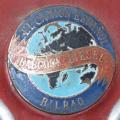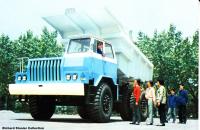Babcock & Wilcox

The Spanish Construction Company Babcock & Wilcox was founded in 1918 on the initiative of a Vizcayan financial group, and the collaboration of the US company Babcock & Wilcox, Ltd., which assigned its invention patents to the new company. The factory was dedicated from the beginning to the manufacture of equipment goods, among which stand out steam boilers, cranes, railway equipment, trucks and various industrial equipment.
The idea of creating the company came from the Spanish Railway company Compañía de los Caminos de Hierro del Norte de España. During the First World War the company met difficulties with the acquiring new locomotives. So they decided to create a company specialized in the construction of steam locomotives.
The main factory was located in Sestao, near Bilbao. The steam locomotives production started in 1922. Since 1928, Babcock & Wilcox company made electric locomotives. After the civil war, Babcock & Wilcox was in charge of repairing 173 damaged locomotives during the conflict. In 1976, the company reached its maximum staff with 5250 employees.
The oil crisis of the 1970s caused a crisis in the capital goods sector. In 1983, it became a part of the INI (National Institute of Industry) group companies. Lastly, in 2004, the Austrian company Austrian Energy & Environment (AE & E) took over 100% of the shares.


